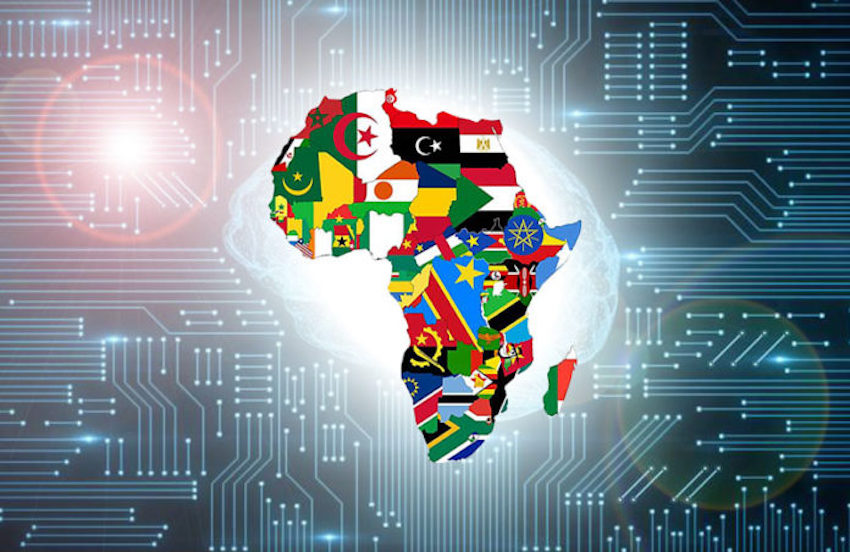
The African Union’s G20 Entry and its Impact on Global Trade Dynamics by Reethika Azariah Kuruvilla, Mission Director (India), Global Alliance for Sustainable Media and Publishing
The African Union’s recent inclusion in the G20 has the potential to significantly reshape global trade patterns. There’s nothing more constant than change, and this singular move is going to have the international trade community ride some interesting waves. Africa’s seat at the G20, a table where important global economic decisions are made, now means it gives the union newfound influence to improve Africa’s trade relationships, generate better investment opportunities, and drive economic growth on the continent. The implications of this landmark decision have the potential to change the dynamics of global trade irrevocably.
The significance of the AU joining the G20 on global trade
From rock paintings described by Herodotus, dating back centuries, trade with Africa as a continent has always been prominent for the international community. African rulers and merchants had trade links with the Mediterranean region way before the European explorers of the 15th century. The Europeans began to establish ports along the African coast for their trade in gold and ivory, but this also marked the beginning of the Atlantic slave trade which had a marked impact on the continent as a whole. Colonial powers of the 19th and 20th centuries saw the extraction of resources for export as well as better infrastructure like railways and ports to facilitate this movement.
Post-colonial trade with African countries moved on to oil, agricultural products and more. This also, unfortunately, led to a time when these countries continued to rely heavily on a small number of export commodities which left them vulnerable to price fluctuations in international markets.
How much more meaningful then are the 21st-century implications for Africa, with a growing emphasis on intra-African trade as well as more equitable and sustainable trade relationship with the rest of the world?
Centuries of trading notwithstanding, as the African Union gains a seat at the table, it brings with it the potential to challenge existing trade dynamics and reshape the way goods and services flow across borders.
The way this works, things can only look up for the G20 from here. The African Union joining the G20 directly correlates to better trade relationships with other member countries with active participation in discussions and negotiations, thereby leveraging resources, market potential, and growing economies for new trade agreements that are mutually beneficial. This would then mean increased exports for African countries and better access to global markets, leading to economic growth and development.
New avenues for foreign investment also open up with this integration, with Africa’s vast natural resources, young workforce, and emerging markets attracting international investors with potential returns. This influx of investment can significantly boost trade, create jobs, and foster economic diversification in African countries.
While it has been the norm historically for developing countries, facing challenges in international markets thanks to trade barriers and unfair practices, things are now going to change with Africa’s representation in the G20. The African Union can advocate for the interests of developing nations, pushing for fair trade policies, reducing trade barriers, and addressing trade imbalances.
Impact on African economies
The African Union’s inclusion in the G20 is expected to have a significant impact on individual African economies as well. Participation in global trade discussions and negotiations would mean African countries have the unique opportunity to attract investment, improve trade relationships, and drive economic growth. This is in stark contrast to, a presumed lifetime ago, when they were at the receiving end of rules and regulations on trading.
An immediate consequence of Africa’s inclusion in the G20 is the potential for increased foreign direct investment (FDI). The presence of Africa within the G20 sends a strong signal to international investors that the continent is open for business and offers promising returns. This influx of investment can lead to the development of industries, infrastructure, and the creation of job opportunities for African citizens.
Another possible effect could be the diversification of economies in Africa. Historically, many countries on this continent have relied on single-commodity exports, leaving them vulnerable to global economic fluctuations. Take Nigeria for instance, heavily dependent on oil exports, where efforts to diversify have been slow and challenging with a background of unstable international oil markets. Engaging with other G20 members can ultimately reduce reliance on just one single sector, leading to more stable and sustainable economic growth.
African countries stand to gain considerable advantages from increased global market access and export opportunities. As G20 members, these nations can participate in negotiations that could lead to favourable trade agreements with other member countries, ultimately promoting easier entry into markets for their goods and services. This can help African businesses to expand their customer base, increase exports, and generate additional revenues.
Leveraging opportunities through the G20 can actually improve regional integration within Africa, as well as bring opportunities for investment, diversification & access to global markets. Intra-African trade can then be established as a more cohesive trading bloc with better economic cooperation & larger markets for African businesses, driving economic integration within the continent for better livelihood of its citizens.
Opportunities for increased trade and investment
Being part of the G20 gives African nations opportunities to boost trade and investment within their own countries as well as have a say in trade policies, rules, and deals. This lets them have more control over global trade, ensuring their interests are protected as well.
Enhanced market access, from being a part of the G20, gives African countries a platform to negotiate favourable trade agreements with other member countries. This would then mean fair trade practices that would leave African goods and services more competitive in the global market. Increased market access can lead to higher export volumes and revenues for African businesses, providing a much-needed boost to their economies.
With the same status as the 27-member European bloc, this 55-member strong African Union sends a positive message to international investors about the continent’s economic potential and stability. This can result in increased FDI inflows into African countries, development of industries, better infrastructure, and job creation. Ongoing investment in sectors such as manufacturing, agriculture, and technology can drive economic growth and promote economic diversification.
The G20 opens doors for African countries to participate in global value chains. Aligning their policies and regulations with other G20 members can enhance competitiveness within the continent and aid in integration into international production networks. This would mean increased opportunities for African companies to become suppliers or partners in global value chains, with resulting technology transfer, skills development, and improved productivity.
Peer learning and knowledge sharing through dialogues and working groups between African policymakers can gain valuable insight into trade promotion, investment attraction, and economic development. This collaboration can help African nations implement effective policies and reforms to enhance their trade capabilities and competitiveness, as well as exchange best practices and strategies with other G20 countries.
Challenges and potential solutions
To fully capitalize on the potential benefits of the G20, trade barriers and obstacles to economic growth need to be addressed first. Working on these can unlock opportunities for increased trade and investment.
Acknowledging challenges that may arise in the African Union is the first step towards progress here. For instance, infrastructure gaps remain a huge hinderance to investment. Insufficient transportation networks, limited access to electricity, and inadequate digital infrastructure can stall efficient movement of goods and services, impacting trade competitiveness.
Infrastructure Development needs to be prioritized in every African nation, focusing on improving connectivity both within their countries and with the rest of the world. Investments in road, rail, port, and airport infrastructure, as well as expanding access to reliable and affordable internet services, are crucial steps for reducing trade barriers and enabling smoother trade flows.
Another challenge to consider is the issue of trade imbalances. African countries may face difficulties in ensuring mutually beneficial trade relationships with G20 nations, particularly due to the existing trade disparities. African policymakers would then need to negotiate fair and balanced trade agreements that take into account the diverse needs and capabilities of their nations.
It is here that the African Union needs to emphasize the importance of capacity-building initiatives and promote policies that encourage diversified, value-added exports from African countries. Encouraging local industries and the development of high-value products can help African nations reduce their dependence on primary commodities, increasing their share in global trade.
More than anything, overcoming non-tariff barriers to trade will remain a significant hurdle unless tackled immediately. African countries face various regulatory, bureaucratic, and administrative obstacles that tend to stifle trade flows and hinder investment. These include complex customs procedures, a lack of harmonization in standards and regulations, and inefficient border management systems.
Streamlining trade procedures should be a common aim for African nations. This would mean simplifying regulations and enhancing border management efficiency. Collaboration with G20 countries could facilitate technical assistance and capacity-building in these areas, allowing African nations to improve trade facilitation for a more conducive business environment.
Steps towards a more inclusive global trade system
The inclusion of the African Union in the G20 is a significant step towards a more inclusive global trade system. However, for the voices of African nations to be heard, they do need to actively participate in global trade negotiations, strengthen their negotiating capacity and representation in international trade forums.
The need of the hour is to promote fair and equitable trade practices. African countries do need to advocate for trade policies that prioritize the needs of less developed countries. This includes measures to address the challenges faced by African economies such as trade imbalances, tariff barriers, and non-tariff barriers to trade.
Collaboration and knowledge sharing between members of the African Union are crucial for better regional integration within the continent. By deepening economic cooperation and integration among African nations, the continent can foster an environment that is conducive to seamless trade and investment flows. This can be achieved through initiatives such as the African Continental Free Trade Area (AfCFTA), which aims to create a single market for goods and services in Africa.
Nurturing entrepreneurship and innovation in Africa is essential. By supporting the growth of small and medium-sized enterprises (SMEs), African countries can foster economic diversification, job creation, and increased competitiveness. This is possible through targeted policies and programs that provide access to finance, technical assistance, and market opportunities for SMEs.
Looking towards a more inclusive and balanced global trade system
The African Union’s entrance into the G20 marks a momentous decision that’s set to reshape global trade patterns. This is a significant milestone in the quest for a more inclusive and diverse global trade system. African nations can now set forward, following the right roadmap, to maximize their participation in global trade and shape the future of international commerce.
By actively engaging in trade negotiations, African countries can assert their needs and priorities on the global stage. Representation in international trade forums aside, advocating for fair and equitable trade practices, and addressing trade imbalances and barriers will create a more level playing field for African economies.
The future of global trade patterns will undoubtedly be influenced by the inclusion of the African Union in the G20. Africa’s potential as a key player in the global trade landscape is immense. Through strategic collaboration and proactive implementation policies that work for each country, African nations can truly transform the global trade system and contribute to sustainable economic growth and development.
Here’s looking forward to a world where trade is based on mutual respect, fairness, and equal opportunities for all nations.






